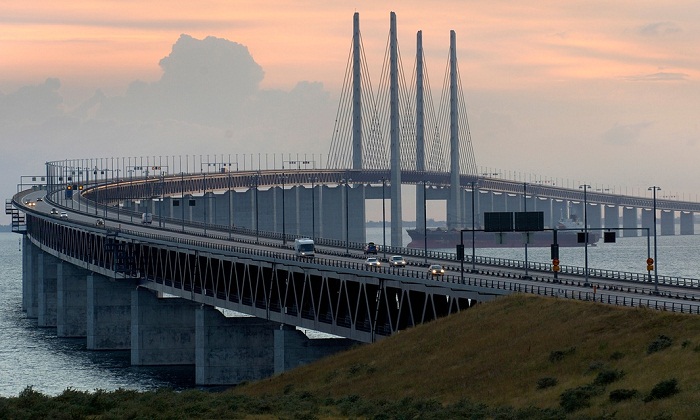Sweden introduces border checks in response to refugee crisis

Swedish police will monitor trains and ferries arriving from mainland Europe and stop anyone without valid travel documents. Officials stressed that anyone seeking to apply for asylum in Sweden would not be turned back, and said that the intention is to deter those hoping to cross Sweden to reach other Scandinavian countries, and to create a more orderly process of arrival for refugees.
“If they come to the border and request asylum, then we will process their request, but if they have no desire to stay, then that’s a question for the police,” a spokeswoman for Sweden’s migration agency, Migrationsverket, said.
Under the previous system, refugees could simply take the train or ferry to Sweden and enter the country unobstructed – a laissez-faire situation that Sweden’s prime minister now says constitutes a threat to security. In an interview with BBC Radio 4’s Today programme on Thursday morning, Stefan Lovgren said: “If you don’t have good control of who is coming here – what people are actually entering the county – that is a risk.”
Sweden is proportionally bearing the biggest burden of the European migration crisis, with 10,000 asylum-seekers arriving every week, and no more short-term space to house them. Migration officials expect the country to absorb at least 170,000 asylum seekers by the end of the year, within a total population of 10 million. Britain, with a population of more than 60 million, has pledged to receive 4,000 Syrian refugees in the same period.
Lovgren said other EU countries needed to step up their response to the refugee crisis, so that the burden was not only left to Sweden and Germany. “I’ve been mentioning burden sharing for a long time,” Lovgren told Today. “It is not sustainable that one country, or two countries, take the vast part of the responsibility. All European countries need to take responsibility. If the European Union can’t handle this situation, it’s serious.”
Other European countries have been extremely slow to react to the scale of the crisis. EU leaders have convened several conferences, such as Thursday’s gathering in Malta but little has been achieved at them. Politicians took months to agree to even a modest quota system that would see less than a quarter of refugee arrivals shared between the EU’s members, leaving the majority of the burden to countries like Sweden and Germany.
The dynamic has left Sweden struggling to find enough beds for its new residents, and has led to internal division about Sweden’s asylum policies. The far-right Swedish Democrat party has called for the country to end its generosity, while the government argues that its high humanitarian standards should be maintained at all costs, and blames its domestic crisis on the negligence of other countries.
“The big problem is in Europe,” Fredrik Bengtsson, spokesman for Migrationsverket, said. “There are so many different asylum systems. In Sweden we have one system, in Hungary they have another, so of course [refugees] are making the rational decision about where they want to go.
“The key for this question is not for Sweden to lower their standards, it’s for other people to raise theirs.”















































